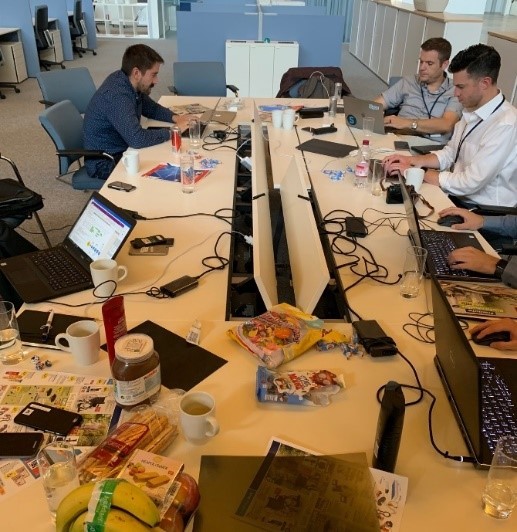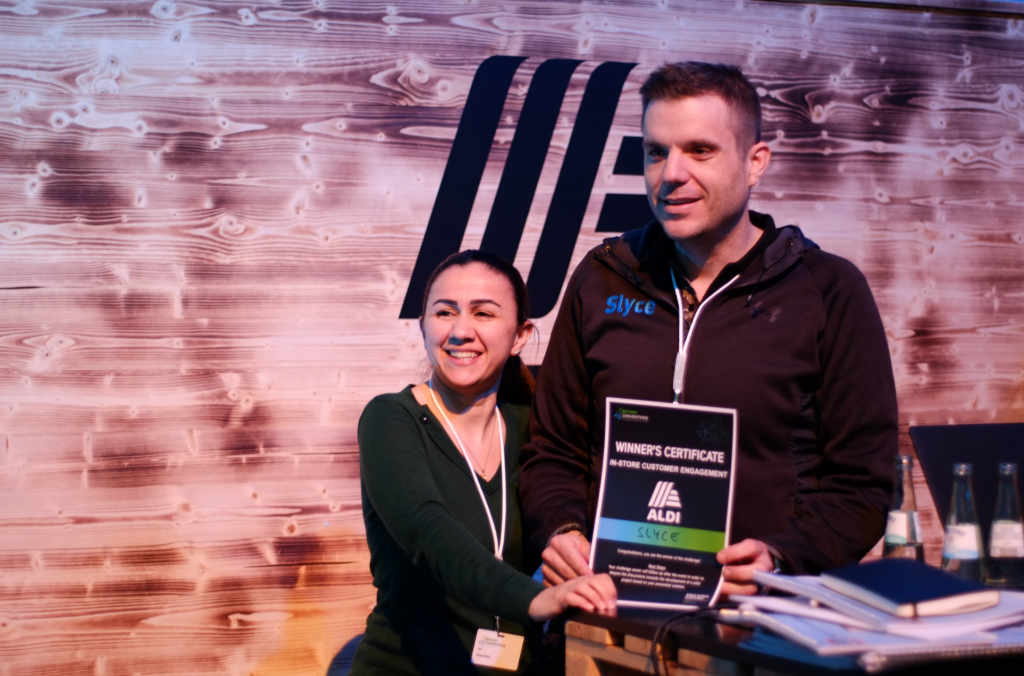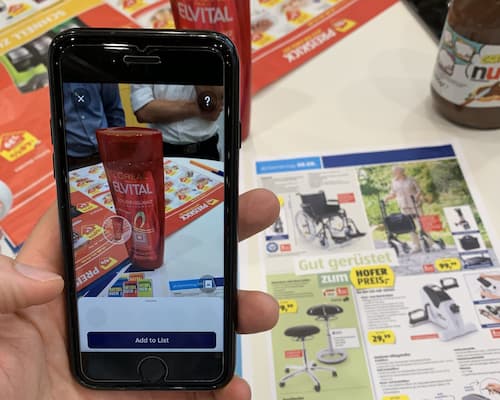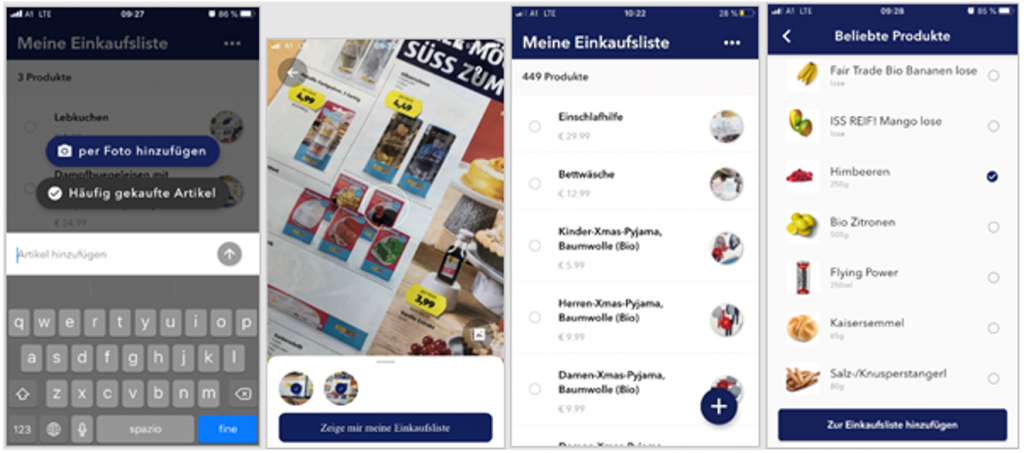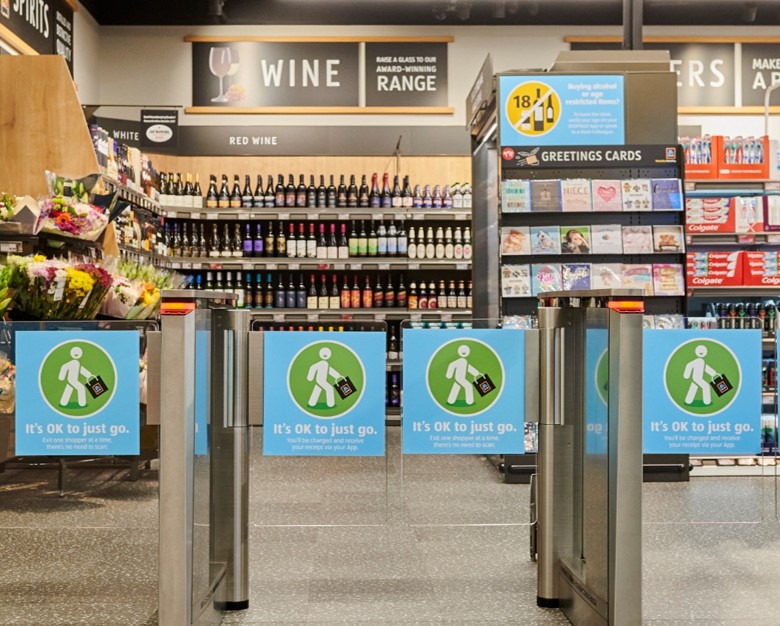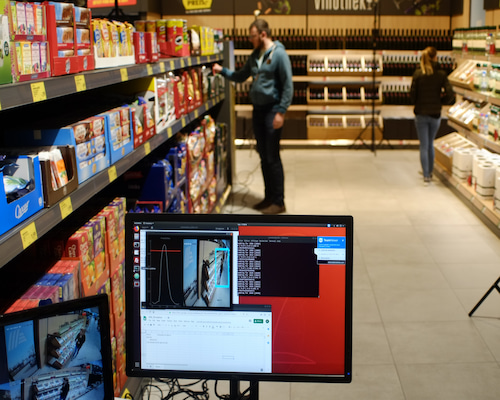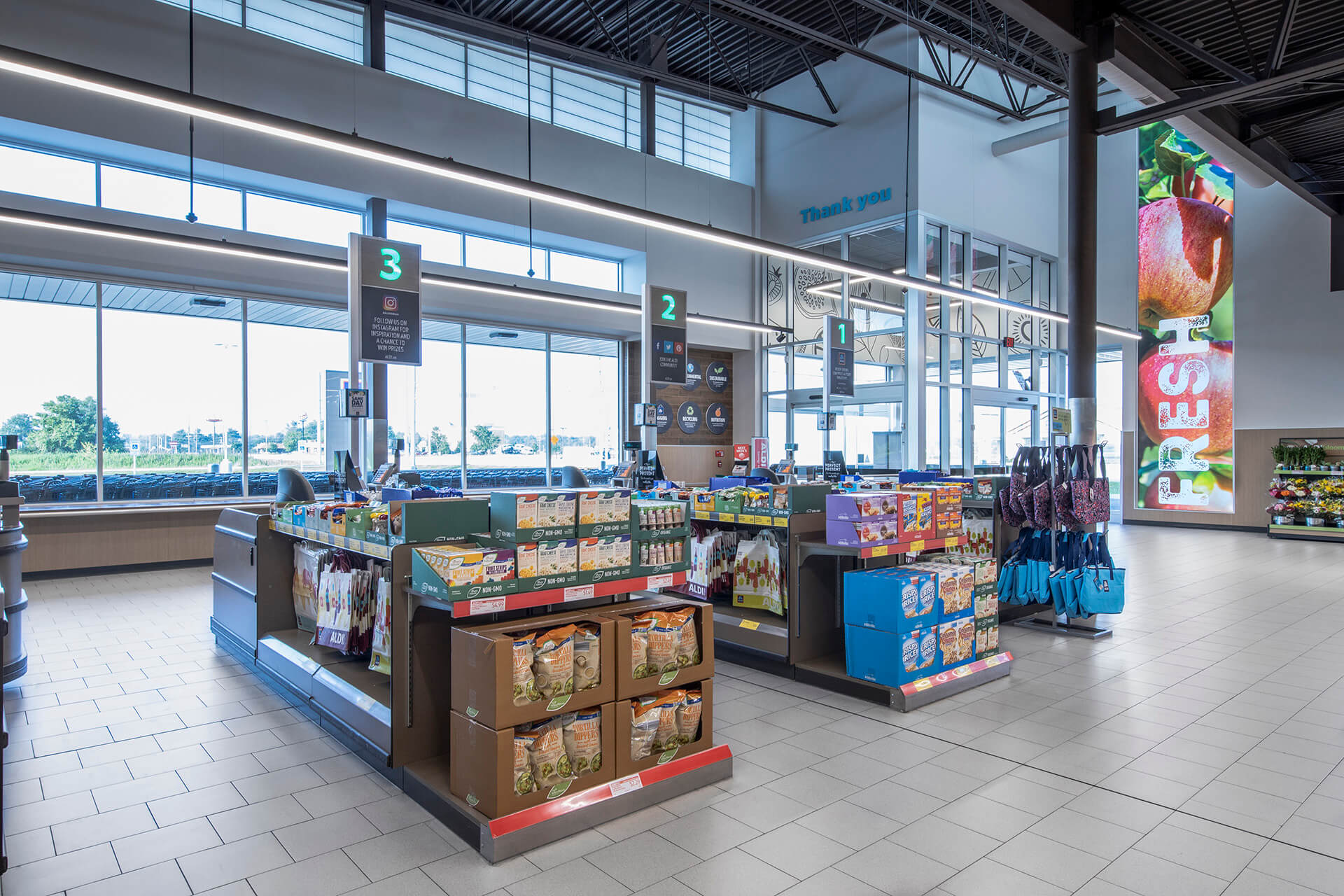
Success stories
Success Story 1
Checkout-free store
ALDI opens ALDI SHOP&GO in London
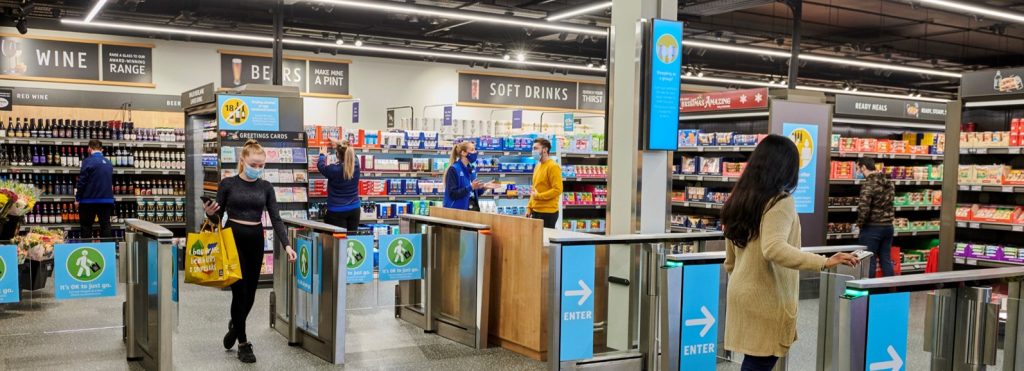
In this project, we collaborated with the AI Startup AiFi, to bring checkout-free technology to one of our stores. Our ALDI innovation process enabled us to identify the right partner, and build and iterate this MVP in a short period of time. The new trial store will allow customers to complete their shopping without having to scan a single product or go through the checkout. Customers can download the dedicated ALDI Shop&Go app, thus enabling them to scan a code at the barrier and enter the store. Once a customer has completed their shopping and left the 450m² store, they will then be automatically charged for their basket via their selected payment method and a receipt will appear in the app. The store will open with the ALDI Shop&Go branding and will be based on the ALDI Local format.
Join our Team
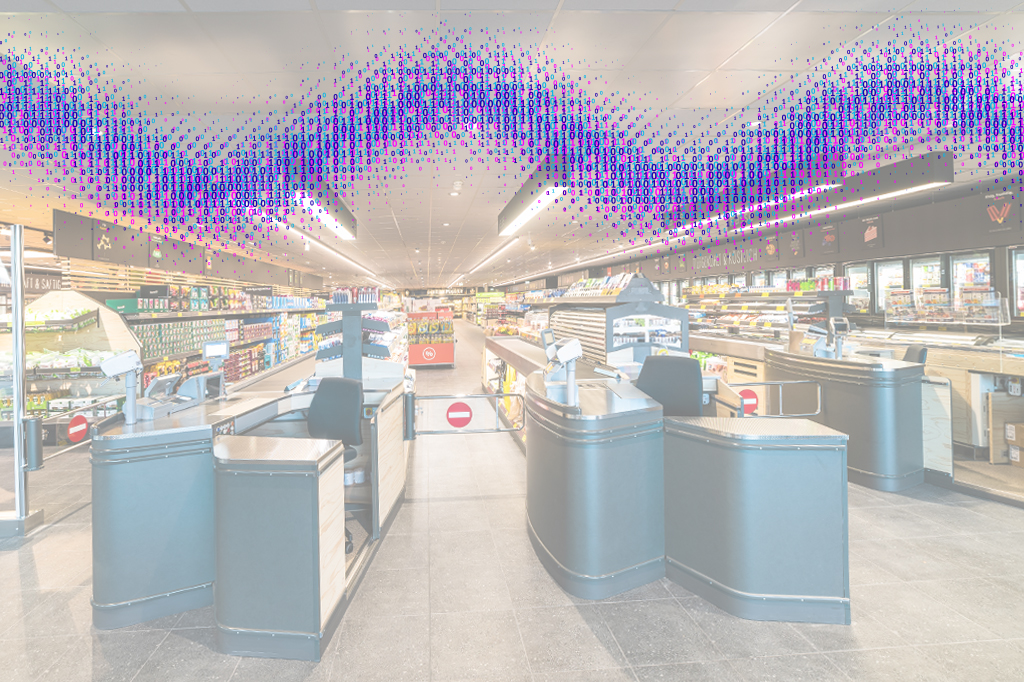
Success Story 2
Theft Detection
EXCUSE ME, MAY (A)I LOOK INSIDE YOUR BAG PLEASE?
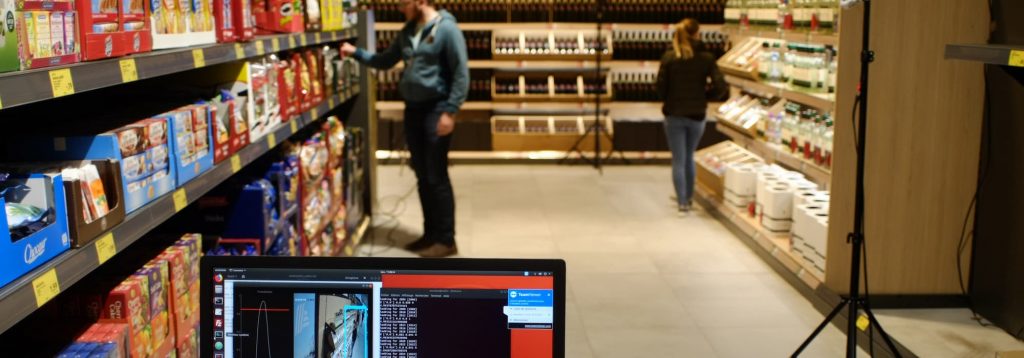
Every retail company faces the risk of shoplifting and theft in stores. Conventional security measures can be effective but are often labour intensive and costly. Experienced security guards are required to monitor multiple camera streams instances of theft are not always detected. This led us to an interesting value proposition: what if we teach a computer the difference between typical shopping behaviour and unusual shoplifting patterns? This led us to partner with Veesion, a young Paris-based start-up company which is working on this very challenge using machine learning technology.
When we started to talk to Veesion about a prototype project, we realised that although their technology solution was well developed, the key issue (true for all machine learning applications) was that we needed high-quality training material specific to our use case and store environment. Therefore, we hired shoplifting actors to create and annotate thousands of video snippets re-enacting the respective behaviour in a lab environment that simulates a real store. Veesion was present as well and did not just advise us about the technology, but also on the latest shoplifting techniques.
Over several iterations of filming videos and training the computer model, we saw recognition performance improve steadily. In this case, performance is not just measured by the actual shoplifting activities detected (true positives), but also has to take incorrect alerts into account (false positives). In the toolchain and process designed by Veesion, the simple and effective countermeasure to prevent any false accusations by the system is human review. A video marked as theft by the system
would always be reviewed by store personnel, before any action is taken.
In this exciting and forward-thinking project with Veesion, we learned a lot about the capability of a machine learning system working in real time and the feasibility of automatic theft detection. Further aspects where we were able to gain valuable experience were data protection and data privacy. The data security of Veesion’s processing pipeline and their ability to technically blur faces is one advantage that can easily be accomplished. As a company that puts great value on ensuring customer
data privacy, it is essential to ensure full compliance every time before any roll-out can be considered. With the prototype proving a success, there are still questions to address before the overall concept of AI-based theft detection is ready for actual use.
Success Story 3
SMART LIST
COMPUTER VISION ON THE PHONE
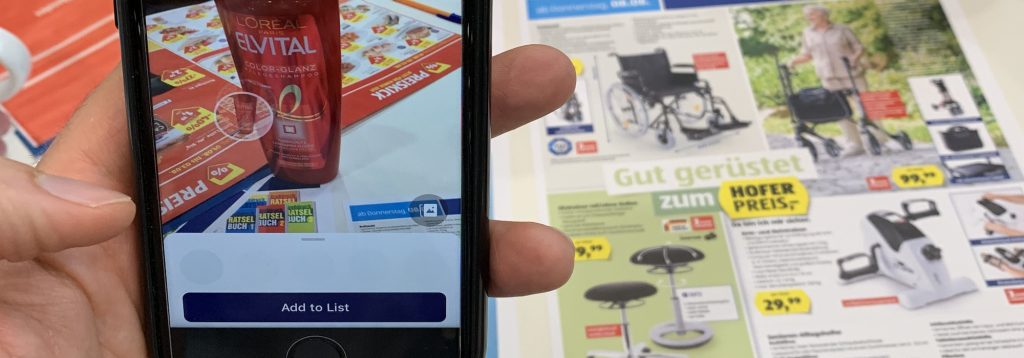
In the beginning of 2019, we co-hosted the startup event Beyond Conventions. One of the participating startups was Slyce from Philadelphia. Their solution enables users to take a snapshot of a product and quickly identify what it is by using machine-learning technology.
The first step in the resulting collaboration with Slyce was the development of an ALDI SOUTH-specific prototype in order to evaluate their technology in our context and in terms of our product range. We established a team of Slyce and ALDI SOUTH engineers, designers and innovation managers and set up a one-week workshop at one of our international locations. Starting with an ideation phase, we collated all of our ideas on whiteboards before deciding on one use case: a visual search-powered shopping list based on this exemplary user journey:
- Imagine you are planning your weekly shopping at ALDI and instead of using a paper-based shopping list or a list app to type in every product, you start taking pictures of what you want to buy.
- Open the fridge and take snapshots of what you need to buy again. Browse through the weekly promotion leaflet and “snap” your preferred items to the shopping list.
- The magical thing that happens next is that every product in your “snaps” is recognised and your pictures are added to the shopping list together with the related product information.
The resulting prototype already incorporated a lot of the envisioned functionality, which we tested at every available opportunity, e.g. with colleagues during coffee breaks. Going forward, we utilised our learnings to scope a project together with Slyce in order to further develop and stabilise the prototype app. And perhaps even more importantly, we were also able to obtain additional user feedback from usability studies as well as qualitative interviews with real ALDI customers.
